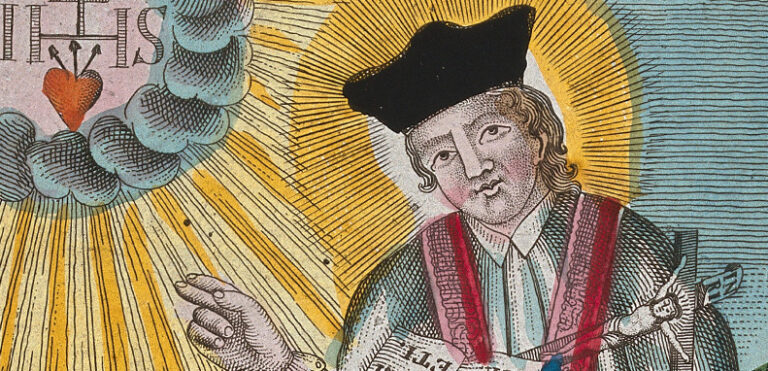Thy love is sweeter than honey
Throughout history, honey bees have been associated with love. Myths from ancient Egypt and Greece highlight the powerful romantic effect bees have on humans—from cupid dipping his arrows in honey, to Ra, the sun god’s tears becoming bees and helping him woo back his lost love.
In some cultures, before a wedding, the bride and groom to-be walk through a swarm of bees—if neither of them are stung, then their love is meant to be. And honey is thought by many to be a powerful “love potion”, encouraging feelings of attraction and romance.
Protector of Beekeepers
Bees symbolize love and beekeepers symbolize the protection of marriage and family. By managing their hives and caring for their bees, beekeepers ensure that their bee colonies flourish and the honey continues its sweet flow. Keeping bees is a special calling- it requires scientific know-how, but also requires a kind and gentle heart. To protect these protectors of bees, St. Valentine was made the patron saint of Beekeepers in 496A.D.
St. Valentine lived in the third century, when the Roman Empire was still flourishing. Legends say the Roman Emperor banned marriages because he thought single men made better soldiers. Valentine was found guilty of secretly marrying couples. While in jail, awaiting his execution, he began to convert his jailers to Christianity. To prove his faith, the head-jailer asked Valentine to heal his blind daughter, which Valentine did by praying with his hands over her eyes. After his execution, a letter was found in his cell, addressed to the jailers daughter—it was signed “your Valentine”.
St. Valentine is believed by many to aid those who call on his intercession to help ensure the sweetness of the season’s honey and provide special protection to those who keep bees. His feast day is February 14, which is the day he was executed.

